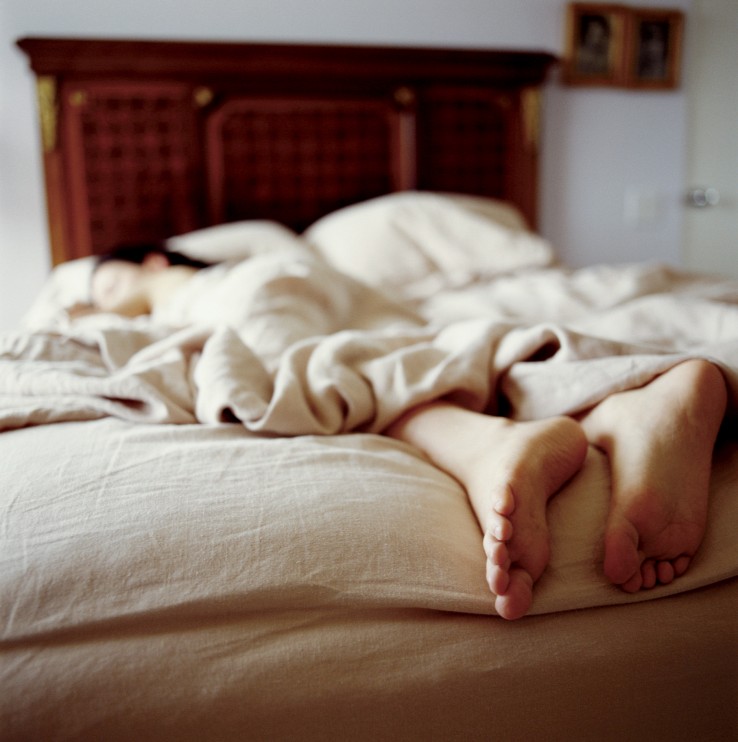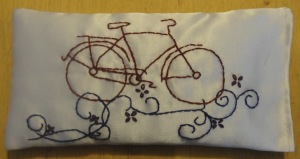
We’ve all struggled with the occasional sleepless nights – whether because of a waking baby or a stressful day. When sleep problems persist, however, the problems that result are more serious than just waking up feeling unrested and grouchy. Persistent insomnia prevents the body from recuperating and regenerating at night, and can lead to fatigue, depression, weight gain, hormonal dysregulation and digestive problems – to name just a few. Addressing problems falling asleep (“sleep-onset insomnia”) and problems staying asleep (“sleep-maintenance insomnia”) is a key piece of the wellness puzzle. Here’s some tips that I often share with my patients at the Boucher Naturopathic Clinic in New Westminster (note: this information applies more to adults – stay tuned for a later post on helping the little people in our lives get restful sleep).
- At bedtime:
- Use your bed only for sleep and sex – avoid watching TV or studying in bed
- Go screen-free 30-60 minutes before bed, including cell phones, computers and TV. This helps your pineal gland promote melatonin synthesis, which is needed for a healthy circadian rhythm and a better night’s sleep.
- Create a relaxing pre-sleep ritual – this can include 10 minutes of meditation (Dr Siddharth has a great “Power Sleep” guided meditation available on iTunes), a warm bath with epsom salts or lavender essential oil, journaling, playing music, or reading a calming book.
- Go to bed before midnight! Going to sleep between 10 and 11 pm is ideal in terms of sleeping the maximum number of hours during the darkest times of the day, and getting the best quality sleep.
 Block out lights and noise. A $5 face mask or black-out curtains will block light in your room that may be interfering with your melatonin. Ear plugs are great if noise pollution keeps you awake (including snoring partners!). These can be custom-made at Simple Hearing on 6th Street across from Mercer Stadium in New Westminster.
Block out lights and noise. A $5 face mask or black-out curtains will block light in your room that may be interfering with your melatonin. Ear plugs are great if noise pollution keeps you awake (including snoring partners!). These can be custom-made at Simple Hearing on 6th Street across from Mercer Stadium in New Westminster.
- During the day:
- Keep a regular wake-up time; even on days off/weekends – this is far more important than you may think!
- Try to get 45 minutes of daylight in the morning by taking the dog for a quick jog or walking your kids to school – this helps to set your internal clock. If you can’t access sunlight, try a sun lamp first thing in the morning or during your first hour at work.
- Avoid napping during the daytime if you can. If you must nap, try for a nap before 3:00 pm, for about 25 minutes only.
- Exercise early and regularly – morning exercise is best for your adrenal glands and for regulating your cortisol levels throughout the day. Aim for 30-60 minutes per day at least 4 times per week.
- Eat low-glycemic foods, and avoid skipping breakfast – this keeps hormone and blood sugar levels stable – simple carbs at night time will cause your blood sugar to rise quickly and then fall, causing night-waking – opt for proteins and complex carbs instead.
- Avoid any drinks (including teas) two hours before bed to avoid waking up to pee.
- Avoid caffeine within 8 hours of bedtime
- When you need more support, consult your Naturopathic Doctor about using supplements to promote a healthy sleep cycle. Some of my favourites include:
 Herbal dream pillows: We started selling these after seeing such awesome results with our own kids. Stuffed with organic lavender, catnip, chamomile and mugwort, these pillows act as aromatherapy to help soothe your little one (or you!) off to sleep
Herbal dream pillows: We started selling these after seeing such awesome results with our own kids. Stuffed with organic lavender, catnip, chamomile and mugwort, these pillows act as aromatherapy to help soothe your little one (or you!) off to sleep- Herbal teas and tinctures, including:
- Avena saliva (Oatstraw): nervous system nutritive – helps “feed the nervous system” when under stress and prolonged fatigue
- Passiflora incarnate (Passionflower): sedative and hypnotic – helpful for nervous tension and restlessness – when the mind cannot settle at bedtime
- Scutellaria lateriflora (Skullcap): nervous system relaxant and tonic – helpful for exhausted states
- Valeriana officials (Valerian): popular nervous system relaxant – reduces anxiety and helps promote a restful sleep
- Piper methysticum (kava kava): sedative, nervous system and muscle relaxant – helpful for sleep-onset insomnia
- Melatonin: a naturally occurring hormone that regulates the sleep-wake cycle, melatonin can be taken to supplement your bodies’ own production. Interestingly, studies have shown low-dose melatonin to be just as effective as higher dose preparations – you may need less than you think!
- 5-HTP: the intermediary between l-tryptophan and serotonin, 5-HTP is a key neurotransmitter associated with mood, sleep and anxiety.
- L-theanine: amino acid that influences neurotransmitters GABA, dopamine, serotonin, norepinephrine and glutamate. This works to decrease anxiety, and increase alpha brain wave activity.
- Acupuncture: my insomnia patients love their acupuncture treatments, and many report the best sleeps they have ever had – there are specific points for insomnia as well as protocols for relaxing the nervous system and calming the mind.





